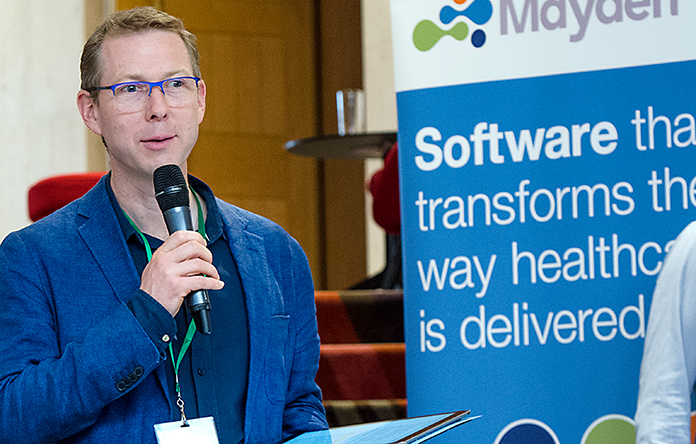
We were honoured to welcome Ursula James, IAPT Programme Manager at NHS England to IAPT Connect 2017 last week. Ursula took us through the Five Year Forward View commitments she presented at last year’s conference, and gave us an update on the progress that has been made on six national IAPT team priorities. You can see Ursula’s slide presentation here and our summary of the key points below:
1. Equality of access and outcomes for adults, particularly older people and BME groups
Ursula described the need for equality of access across IAPT services and the Quality Premium that has been introduced for improved access for older adults and people from BME groups. The national team has created an action plan which they are currently taking on the road to conferences, and talking to providers, clinical networks and commissioners to ensure that everyone involved is aware of the work that needs to happen. Events are coming up in Reading (8 Nov) and the Midlands (22 Nov) and Ursula encouraged delegates to email their local clinical network to find out dates in their area.
The team has produced an awareness campaign and worked closely with Age UK to create video interviews with older service users. Check out Ursula’s blog to find out more about the work with clinical networks.
2. Improving service quality – improving and sustaining the recovery rate, addressing variability, improving outcomes for people using services in the perinatal period, improving choice of treatments in services
It’s just been revealed that the 50% target recovery rate has been met for six consecutive months – Ursula highlighted that this is something we should all be very proud of. The national team continues to work with clinical networks to address variation across the country. With the help of NCCMH, a new IAPT manual is in development and due for publication before the end of the year. Ursula described how it provides a clear guide for what a quality IAPT service should look like. The manual goes into detail on every aspect of an IAPT service: how one should run, the workforce, treatments the service should provide etc.
3. Improving service productivity, starting with appropriate use of digital
Ursula stressed that increasing productivity is not about making staff work harder – we know people are working at capacity across the system. We need to work smarter, exploring the role of digital tools and how treatment choice is offered across the country. Also at the event, James Woollard spoke further about the role of digital therapies in IAPT, and we’ll be posting a blog about that soon.
4. Supporting the implementation of activity and outcomes based payment in IAPT
It is a national policy objective that there will be increased transparency in the payment system and improvements by linking payment to quality and outcomes measures in IAPT from April 2018. Ursula described how a national tariff will use the ten national outcome measures that are collected within the IAPT minimum dataset. There is flexibility here – local areas can look at the guidance to decide how best it would work for their area.
5. Improving the sustainability of the workforce
Ursula introduced Becky Minton, Workforce Wellbeing Project Manager at NHS England, who has been talking to services and scoping out the work that’s been done so far on staff wellbeing. Becky has written an article for the IAPT manual on wellbeing. Judith Chapman also spoke on workforce sustainability and staff wellbeing at the event. Stay tuned for a blog about Judith’s presentation in the coming weeks.
6. Designing and developing new integrated IAPT service models with physical healthcare in primary and secondary care
The integration of IAPT with physical health pathways is one of the main commitments of the Five Year Forward View, which looks to increase access from 15% to 25% by 2020/21. Ursula described how two thirds of that expansion should be through integrated IAPT services for people with Long Term Conditions or distressing and persistent Medically Unexplained Symptoms.
After her presentation, Ursula shared her views in a Mental Elf podcast of the IAPT LTC integrated service model as a systemic change that will see IAPT practitioners working within multidisciplinary teams. We’ll be going into more detail about this in an upcoming blog.
Thanks so much to Ursula for joining us at the event, and for such an information-packed session.

